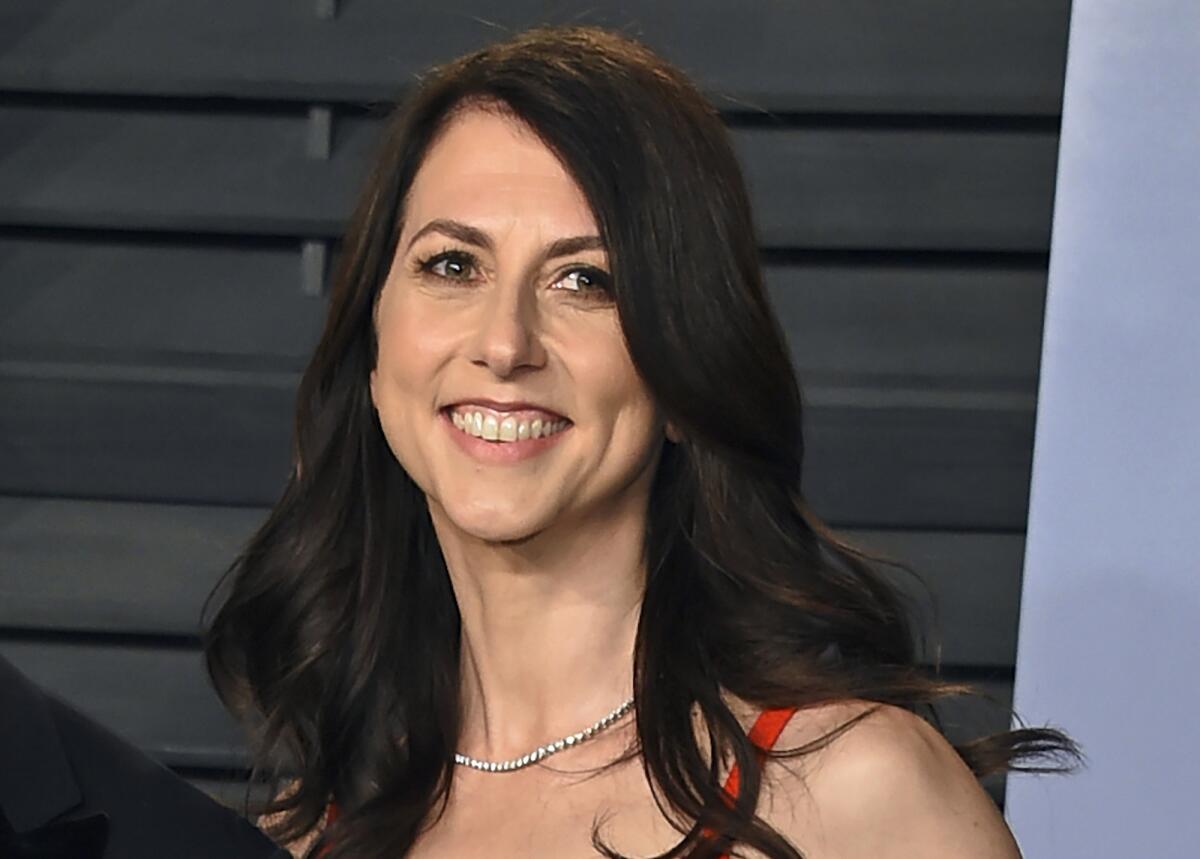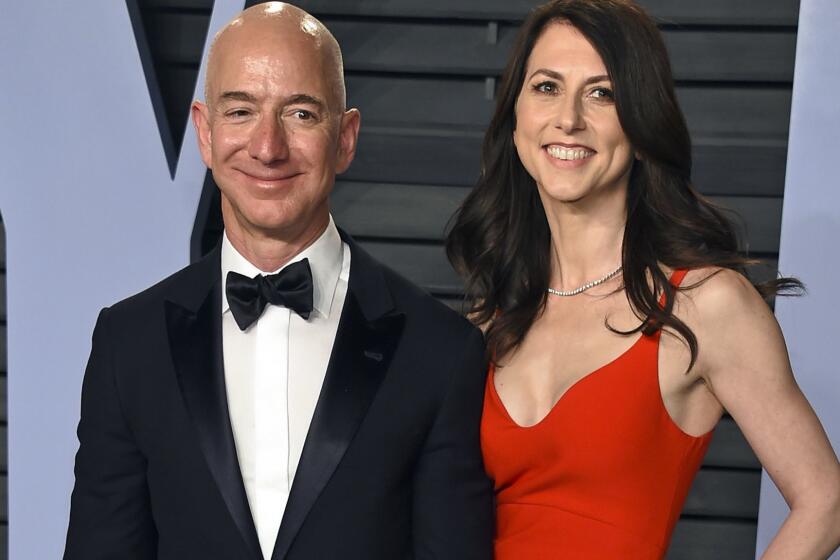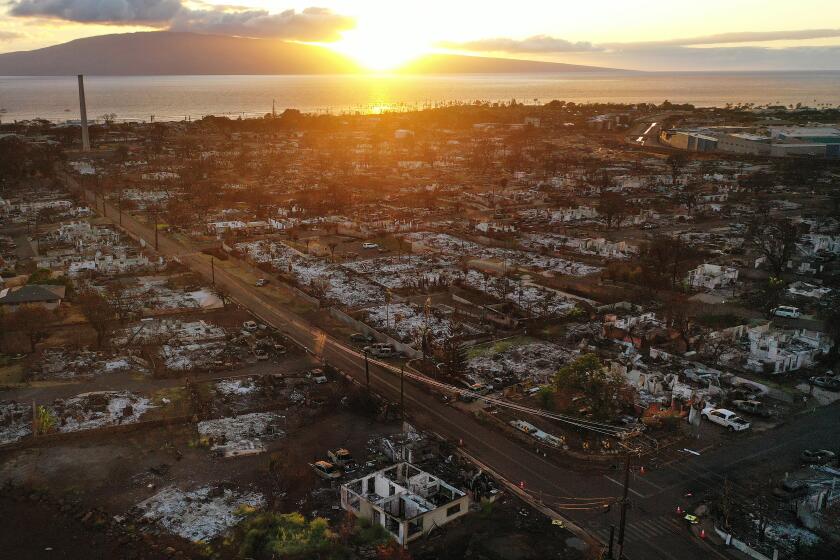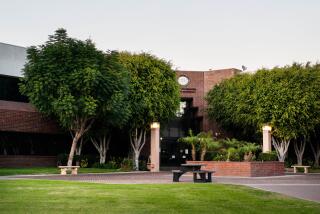MacKenzie Scott donates $640 million, with $137 million going to California nonprofits

When a nonprofit serving Los Angeles’ homeless and foster youth applied last year for a slice of billionaire philanthropist MacKenzie Scott’s latest round of giving, the group hoped to get $1 million.
Instead, the team at Youth Emerging Stronger learned this week it was one of almost 300 community groups nationwide to be awarded $2 million.
“It doubled the amount that we were hoping for,” said Mark Supper, chief executive and president of Youth Emerging Stronger, adding, that they were “a bit dumbfounded by it, but we’re so happy.”
Scott, who co-founded Amazon with her ex-husband, chief executive Jeff Bezos, donated $640 million to more than 350 community groups nationwide, more than doubling the amount she initially planned to give, according to Yield Giving, Scott’s website. Of that pot, $137 million went to 76 organizations that serve Californians. The majority received $2 million, but about 80 organizations received $1 million.
Letters to the Editor: More billionaires should be like MacKenzie Scott and give away their fortunes
Are we so cynical now that $4.2 billion in charitable giving is taken as an indication of society’s ills?
Supper’s nonprofit was among the 25 Southern California groups that shared $47 million.
“For us, it’s really a transformational kind of gift,” Supper said. “It allows us to really think long term in our strategies and our approaches.”
The news of the massive donation is still only days old, and Supper said his team is still working on specific plans for how to use the money. But he said the group will definitely focus on expanding housing and mental health services for the vulnerable youth, ages 12 to 24, whom it serves.
Supper said his nonprofit was notified recently that it was among the finalists from Scott’s open call — which got more than 6,000 applicants — for “community-led, community-focused organizations whose explicit purpose is to advance the voices and opportunities of individuals and families of meager or modest means, and groups who have met with discrimination and other systemic obstacles.”
“We’re just so pleased that they saw the value of our work,” Supper said. “It’s a critical age bracket that I think a lot of people don’t spend a lot of time on when we look at the unhoused issue.”
Among the other Southern California awardees are the LGBTQ Center in Long Beach; Pacoima Beautiful, an environmental justice group in the San Fernando Valley; Reality Changers, a San Diego group working with first-generation college students; the California Native Vote Project, which advocates for Native American community; and Achievable Health, which provides healthcare to people with intellectual and developmental disabilities, according to Scott’s database of gifts.
Bezos has delivered $15.5 million so far, a spokesperson said, but local officials and nonprofits don’t know where the money went.
“We were just jumping up and down with joy when we heard this was happening,” said Carmen Ibarra, the chief executive of Achievable Health, based in Culver City.
“It comes at just the right time,” she said, as the organization’s community health center is working on plans to expand to provide services to more people with intellectual and developmental disabilities, who she said are “often underserved and overlooked in healthcare.”
“We’re limited right now in terms of our capacity, mainly around space,” Ibarra said. “We will be expanding our services, expanding our site, expanding the staffing that we have to be able to serve more patients in the community. ... This really is jumpstarting those efforts.”
This round of donations follows many others from Scott, who has pledged to donate more than half of her wealth, which is estimated at about $32 billion, according to Forbes. Scott has typically given to organizations without an application process, but this time she worked with philanthropic group Lever for Change to analyze the thousands of applicants.
“Grateful to Lever for Change and everyone on the evaluation and implementation teams for their roles in creating this pathway to support for people working to improve access to foundational resources in their communities,” Scott wrote on her website Tuesday. “They are vital agents of change.”
More to Read
Sign up for Essential California
The most important California stories and recommendations in your inbox every morning.
You may occasionally receive promotional content from the Los Angeles Times.













